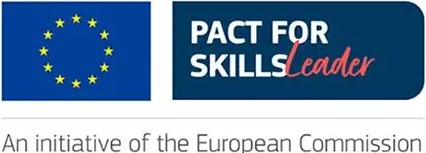Discover our training catalog
All our trainings are available here
Discovering the bioproduction plant environment
This curriculum provides an introduction to the specificities of biopharmaceuticals, the key stages of their production, and the technological and regulatory challenges related to bioproduction. It is based on tools and methods such as clean room standards, Quality Control (QC) principles, data integrity, and performance levers (Lean, maintenance, Industry 4.0).
CURRICULUM
Available in French, English
USP (Upstream process) in cGMP
This curriculum enables to understand and apply the requirements of Good Manufacturing Practices (cGMP) at each stage of cell culture (USP) in bioproduction, from equipment preparation to harvesting the cell culture product. It is based on cGMP guidelines applicable to controlled environments, best practices for behavior in cleanroom areas, categories of in-process controls, analytical tools and methods, data integrity principles according to ALCOA+, deviation and CAPA management, as well as practical scenarios designed to develop operational skills in a USP context.
CURRICULUM
Available in French, English
Fill & Finish in cGMPs
This curriculum offers an exploration of Fill & Finish operations, the final stage of biopharmaceutical production processes, carried out in an aseptic environment in accordance with Good Manufacturing Practices (GMP). It covers the specificities of biological products, the steps of aseptic formulation, sterile filtration and filling, equipment management, sterility requirements, as well as quality control, packaging, and serialization procedures. Particular focus is given to the hands-on implementation of the aseptic filling line operated within an isolator. It is based on key regulatory references such as Good Manufacturing Practices (GMP), ICH guidelines (including ICH Q9), ISO 14644 and ISO 14698 standards, and 21 CFR Part 11 standards for data integrity. It includes aseptic formulation techniques, the Media Fill Test, filling equipment in isolators, environmental monitoring devices, deviation management and in-area interventions (routine or critical), gowning protocols, sampling and visual inspection procedures, as well as serialization and aggregation systems for traceability and anti-counterfeiting. (P3M10)
CURRICULUM
Available in French, English
DSP (Downstream process) in cGMPS
This curriculum explores all the stages involved in the purification of biomolecules following cell culture, with a strong focus on the implementation of current Good Manufacturing Practices (cGMPs) to ensure product quality, safety, and regulatory compliance. It is based on tools and methods such as chromatography and filtration techniques, in-process controls (IPCs), viral clearance steps, automated cleaning methods (CIP/SIP), rigorous data use according to ALCOA+ principles, as well as Process Analytical Technology (PAT) for real-time process monitoring. (P4)
CURRICULUM
Available in French, English
Quality Control in bioproduction
This curriculum provides an understanding of how to assess the quality of biopharmaceuticals throughout the bioproduction chain through microbiology, immunology, physicochemical, viral, and efficacy/potency testing. The objective is to apply in-process quality controls, manage deviations, and ensure data integrity to guarantee the compliance and quality of bioproducts. It develops a practical understanding of the different tests while following Good Laboratory Practices (GLP). It is based on the quality and regulatory standards used in quality control (GLP, GMP), the types of tests according to experimental models (in vitro, in vivo, ex vivo), critical parameters of analytical robustness (accuracy, specificity, sensitivity), specific analytical methods (ELISA, PCR, etc.), the principles of data integrity (ALCOA+), and approaches to managing analytical non-conformities. (P5)
CURRICULUM
Available in French, English
Data Integrity in Healthcare industry: all steps up to product batch release
This curriculum explores the challenges related to data integrity in the pharmaceutical industry, covering the full data lifecycle and the ALCOA+ principles. It addresses the requirements for ensuring data reliability in a regulated environment, notably through the validation and ongoing compliance of computerized systems, as well as the central role of data in the product release process. It draws on the ALCOA+ principles, GxP regulatory requirements, specific guidelines such as the GAMP 5 Guide for computerized system validation and 21 CFR Part 11 on electronic records and electronic signatures. It also relies on data integrity–focused risk analysis methodologies (DIRA), governance mechanisms (roles, oversight, remediation), key validation components (V-cycle, Validation Master Plan, state of control), and real-world examples illustrating data breaches or compliance failures. (ref. P6)
CURRICULUM
Available in French, English
Upstream and Downstream bioprocesses development and industrialization
This curriculum provides a comprehensive understanding of the stages involved in the development and industrialization of bioprocesses, from the design of cell culture (USP) and purification (DSP) process steps to industrial technology transfer and the application of industrial innovations. It is based on key tools and methodologies such as Quality by Design (QbD), Design Space, control strategy, GARAMP (Gap Assessment, Risk Assessment and Mitigation Plan), and deviation management tools (e.g., 5M and 5W approaches). The curriculum also highlights innovative technologies including single-use systems, digitalization, and process miniaturization. (ref. P7)
CURRICULUM
Available in French, English
Supply Chain Management - Logistics activities from production to patients
This curriculum covers the entire bioproduct logistics chain, addressing the specific challenges of transport, storage, and operational management. It provides a comprehensive overview of regulatory requirements, industry best practices, and control mechanisms needed to ensure the integrity, safety, and compliance of sensitive biological products throughout their life cycle. It is based on key frameworks such as Good Distribution Practices (GDP), international standards (CMR, CIM, ISTA, ASTM), Standard Operating Procedures (SOP), qualification principles (OQ – Operational Qualification, PQ – Performance Qualification), traceability systems, temperature control strategies (TOR – Time Out of Refrigeration), and deviation management approaches (CAPA – Corrective and Preventive Action), while also integrating relevant technologies (EDLM, ITE, ERP, WMS).
CURRICULUM
Available in French, English
Data analysis for bioprocesses
This curriculum provides an understanding of how to leverage data generated throughout the bioprocess lifecycle to enhance performance, quality, and compliance in bioproduction processes. It is based on the lifecycle phases, information system architectures (LIMS, MES, SCADA, ERP), data governance frameworks, statistical analysis methods, simulation and artificial intelligence models, as well as data visualization, cleaning, and normalization tools. (P12)
CURRICULUM
Available in French, English
Bioprocess of innovative therapy drugs or “ATMPs”
This curriculum provides an understanding of the specific characteristics of Advanced Therapy Medicinal Products (ATMPs), including gene therapies, cell therapies, and tissue engineering, and enables participants to acquire the skills required for their development, production, and industrialization in compliance with regulatory standards. It also covers production and control methods for viral vectors (AAV, lentivirus) and non-viral vectors (mRNA, lipid nanoparticles), bioprocesses for cell culture, transduction, expansion, and purification, tissue engineering processes, analytical tools, as well as approaches to industrialization, comparability, scale-up, and risk analysis. (ref. P13)
CURRICULUM
Available in French, English
Bioproduction technician
This curriculum prepares participants for the role of bioproduction technician in the pharmaceutical and biotechnology industries. It covers all operations carried out on a biopharmaceutical production line, in a controlled environment and in accordance with the strict standards of Good Manufacturing Practices (GMP / cGMPs). The curriculum covers upstream (USP) and downstream (DSP) manufacturing processes, in-process controls, equipment and deviation management, requirements related to aseptic environments, product logistics, as well as hands-on application in the production facility.
CURRICULUM
Available in French, English
Bioproduction engineer
This curriculum develops the strategic and operational skills required for the role of bioproduction engineer in the pharmaceutical and biotechnology industries. It covers the entire biopharmaceutical production chain, from process development to industrialization, including aspects related to quality, data, digitalization, and technological innovation. The modules address the design and optimization of USP and DSP processes, quality control, management of aseptic environments, data handling and computerized systems, as well as the challenges of Industry 4.0 as applied to bioproduction. Case studies and virtual reality simulations help bridge theory and practice, from process development to technology transfer and GMP manufacturing. The curriculum also includes an introduction to Advanced Therapy Medicinal Products (ATMPs), new technologies (RNA, non-viral vectors), and the statistical and digital tools used for process monitoring and continuous improvement.
CURRICULUM
Available in French, English
Fill & Finish technician
This curriculum prepares participants for Fill & Finish operations, the final stage in the manufacturing process of biopharmaceuticals, carried out in an aseptic environment in compliance with Good Manufacturing Practices (GMP/cGMPs). It trains technicians to operate across the entire filling and packaging chain, from raw material reception to serialization of finished products. The modules cover formulation, sterile filtration, aseptic filling, sampling, in-process quality control, labeling, and logistics. The curriculum emphasizes the requirements of sterile environments, gowning procedures, expected behaviors in classified areas, traceability, and critical data integrity. A case study in a simulated environment helps connect technical knowledge with real-world industrial constraints.
CURRICULUM
Available in French, English
Fill & Finish engineer
This curriculum trains participants in the technical and quality responsibilities associated with the Fill & Finish stages, within the framework of aseptic biopharmaceutical production in a regulated environment. It covers the entire chain, from raw material handling to final packaging, with a focus on process management, quality compliance, and production data analysis. The modules cover formulation, sterile filtration, aseptic filling, in-process control, sampling, serialization, as well as mastery of GMP/cGMP standards. The curriculum includes key concepts such as technology transfer, data integrity, applied statistics, and digital tools (Industry 4.0) to manage and improve production line performance. A case study and immersive modules enhance skill development through realistic simulations of industrial Fill & Finish challenges.
CURRICULUM
Available in French, English
Quality technician
This curriculum prepares participants for the operational duties of quality technicians in the biopharmaceutical industry. It covers the key stages of quality control throughout the production cycle, in alignment with Good Manufacturing Practices (GMP/cGMPs) and data integrity standards. The modules address USP and DSP processes from a quality perspective, in-process controls, sampling, deviation management, quality logistics, as well as packaging and serialization of finished products. Special attention is given to mastering the aseptic environment, handling raw materials, and the specificities of Fill & Finish processes. The final case study allows participants to apply their acquired knowledge in a realistic industrial context, integrating all links in the quality chain.
CURRICULUM
Available in French, English
Quality engineer
This curriculum trains participants for the role of quality engineer in the biopharmaceutical industry, in alignment with regulatory standards, Good Manufacturing Practices (GMP/cGMPs), and industrial performance tools. It covers all stages of manufacturing, from process development to batch release, including deviation management, data integrity, microbiology, and digital compliance. The modules cover quality control in production (USP/DSP), aseptic filling processes (Fill & Finish), monitoring of critical parameters, traceability, quality logistics management, and interactions with industrial information systems. The curriculum also introduces performance improvement levers (Lean, digitalization), technology transfer, and data requirements throughout the product life cycle. Immersive case studies allow participants to apply learned concepts in scenarios that reflect real-world quality challenges in bioproduction.
CURRICULUM
Available in French, English
Quality Control technician
This curriculum trains participants for the role of quality control technician in the biopharmaceutical industry. It covers all analyses performed throughout the production cycle of biopharmaceuticals, in compliance with quality standards and Good Manufacturing Practices (GMP/cGMPs). The modules cover microbiological, physicochemical, immunological, and molecular biology analytical methods; in-process controls (USP/DSP); critical data management; method validation; and requirements related to the storage, transport, and handling of biological samples. The curriculum also includes awareness of aseptic environments and the specificities of Fill & Finish processes. Applied and immersive modules allow learners to virtually operate equipment, perform laboratory analyses, and practice reading and interpreting results.
CURRICULUM
Available in French, English
Quality Control engineer
This curriculum trains participants for the responsibilities of a quality control engineer in the biopharmaceutical industry, combining mastery of analytical methods, system validation, data governance, and regulatory requirements in a GMP environment. The modules cover microbiological, physicochemical, immunological, and molecular analyses, in-process controls (USP/DSP), analytical validation, as well as principles of data integrity and compliance of computerized systems. The curriculum also addresses statistical tools, digital infrastructure requirements, quality deviation management, and batch release documentation. A significant focus is placed on digitalization challenges, quality process automation, regulatory inspections (use cases), and data utilization throughout the product life cycle. Immersive modules provide hands-on practice with analyses and expected behaviors in a controlled environment.
CURRICULUM
Available in French, English
Logistics technician
This curriculum prepares participants for the specific logistics operations within the biopharmaceutical industry, in compliance with traceability, quality, and regulatory requirements. It trains technicians in managing flows, storage, transportation, and handling of sensitive products in a pharmaceutical environment. The modules cover cold chain transportation, GMP-compliant inventory management, qualification of logistics equipment, and handling of raw materials and finished products in coordination with production units (particularly Fill & Finish). The curriculum also includes deviation management within the supply chain, data integrity requirements, and appropriate behaviors in aseptic areas. Immersive modules allow participants to become familiar with industrial environments and equipment specific to pharmaceutical logistics.
CURRICULUM
Available in French, English
Logistics engineer
This curriculum trains participants for the responsibilities of a logistics engineer in the biopharmaceutical industry, at the intersection of production, quality, and supply chain. It prepares them to manage and optimize material and product flows, incorporating regulatory constraints, traceability requirements, and digital technologies applied to logistics in a GMP environment. The modules cover bioproduct transportation — including cold chain logistics — qualified storage, material handling, qualification of logistics equipment, quality deviation management within the supply chain, and data integrity throughout the cycle. The curriculum also includes industrial performance drivers (Lean, digitalization), behaviors in aseptic areas, and practical cases from real production environments. A final case study connects all aspects of logistics to the operational management of a bioproduction facility.
CURRICULUM
Available in French, English
Discovering biopharmaceuticals: key development stages, regulatory framework, and manufacturing processes
This module provides an introduction to biopharmaceuticals, their specific characteristics, the main stages of their development, and the production processes used in bioproduction. It is based on the regulatory frameworks governing the development of biopharmaceuticals, such as Good Manufacturing Practices (GMP), ICH guidelines, the requirements of regulatory agencies (EMA, FDA), as well as the key stages of production processes (USP, DSP, Fill & Finish). (P1M1)
MODULE
Available in French, English
Immersion in a cleanroom: preventing contamination and adopting best practices
This module covers the characteristics of cleanrooms, the associated contamination risks, and the expected gowning and behavioral practices in production environments. It is based on Good Manufacturing Practices (GMP), ISO standards, principles for controlling the production environment (air classes, airflow, biosafety levels, gowning), as well as on control equipment (laminar flow systems, filters...). (P1M2)
MODULE
Available in French, English
Data Quality and Integrity in Bioproduction: Principles and practical cases
This module presents the key principles of data integrity and their applications in bioproduction through concrete, real-life scenarios. It is based on the ALCOA++ principles, as well as the guidelines from the EMA and the FDA (21 CFR Part 11). (P1M5)
MODULE
Available in French, English
Performance Levers in Bioproduction: Lean, Maintenance, and Industry 4.0
This module explores performance and compliance levers in bioproduction through Lean approaches, controlled maintenance, and Industry 4.0 tools, with a constant focus on quality and data integrity. It is based on the principles of the Lean House and draws on tools such as the 5S method, the PDCA cycle, Kaizen, Kanban, and Six Sigma approaches. (P1M6)
MODULE
Available in French, English
Presentation of cGMP and USP industrial environment
This module presents the fundamental principles of Good Manufacturing Practices (cGMP) as applied to cell culture (USP) in a controlled environment, detailing the various stages of the USP process and the requirements associated with each step. It is based on cGMP (Current Good Manufacturing Practices) guidelines, best practices in hygiene and equipment preparation, bioreactor-based cell culture techniques (real-time monitoring of critical parameters), harvesting procedures, as well as documentation, traceability, and cross-contamination risk control requirements throughout the process. (ref P2M2)
MODULE
Available in French, English
Behaviors for USP in cGMP industrial environment
This module teaches the expected behaviors in a USP controlled environment in compliance with cGMPs, with a focus on contamination prevention, strict hygiene, and rigorous management of high-risk operations. The module is based on cGMP standards, classifications of controlled areas (ISO / EU Grades A-B-C-D), best practices for handling under a biosafety cabinet (BSC), procedures for managing high-risk situations, as well as cleaning methods, waste disposal, and documentation traceability. (P2M3)
MODULE
Available in French, English
In-Process Controls (IPCs) for USP in cGMP
This module presents the different types of controls performed during production in a USP environment to ensure the quality, integrity, and compliance of biological products, in accordance with cGMP requirements. It covers the categorization of In Process Controls (IPCs) – in-line, at-line, and off-line – the sampling protocols described in the sampling plan, documentation requirements (batch record), as well as deviation management and the implementation of corrective actions to support continuous process improvement. (P2M4)
MODULE
Available in French, English
Data Integrity applied to USP in cGMPs
This module explores the principles of data integrity within USP processes, in connection with cGMP requirements, and addresses the challenges associated with the increasing digitization of industrial data. It is based on ALCOA+ principles, regulatory requirements for electronic data (21 CFR Part 11), best practices for managing the digital data lifecycle, cybersecurity protocols, as well as case studies on deviations and the correction of anomalies in both handwritten and electronic records. (P2M5)
MODULE
Available in French, English
Introduction to Fill & Finish
This module presents the key stages of the Fill & Finish process, including storage, formulation, filling, visual inspection, labeling, and packaging. It also introduces patient risks and their management, and details dosage forms as well as the stability of biopharmaceutical products. The module addresses patient risk management and the constraints related to the stability of biopharmaceuticals. It adopts a descriptive approach to the different product types (proteins, mRNA, cells), highlighting the differences with chemically derived pharmaceutical products, as well as the factors influencing their stability during formulation operations. (P3M2)
MODULE
Available in French, English
Practice USP in cGMPs
This module offers immersive simulations of typical operations in a USP process within a cGMP environment, while developing the reflexes needed to manage anomalies under real-life conditions. It is based on the application of cGMP best practices, deviation and root cause analysis, the implementation of corrective and preventive actions (CAPA), the use of production documentation for decision-making, as well as teamwork to assess risks and anticipate the impact of deviations on product quality. (P2M6)
MODULE
Available in French, English
Material reception and handling
This immersive module, delivered in virtual reality, covers the different stages of receiving, inspecting, and handling materials used in the Fill & Finish process. It presents best practices for storage areas (quarantine, ready-to-use, cold rooms, reject area), documentary and physical verification upon receipt, as well as safety precautions when handling dry ice and liquid nitrogen. It is based on receiving procedures in compliance with currentGood Manufacturing Practices (cGMP), management tools such as the ERP (Enterprise Resource Planning) system, physical integrity checks (labeling, leaks, seals), personal protective equipment (PPE), and specific guidelines for handling products stored in dry ice or liquid nitrogen. (P3M3)
MODULE
Available in French, English
Thawing, formulation & pooling, filtration
The module details the steps of the bioproduct formulation process, from thawing to sterile filtration. It also covers aspects related to weighing, mixing, and sampling. It is based on the batch record to apply formulation protocols and introduces the principles of in-process controls (IPC) and samples sent to Quality Control (QC). The regulatory requirements of an aseptic environment are also highlighted as prerequisites before start-up. (P3M4)
MODULE
Available in French, English
Aseptic Filling line specific conditions
This module presents the specific requirements for aseptic filling lines. It covers the environmental conditions to be controlled, the equipment used, as well as the organization and execution of interventions during production (routine, non-routine, unplanned). Particular attention is given to contamination risk management and the importance of the Media Fill Test as a method of aseptic validation. It is based on Good Manufacturing Practices (GMP; EMA Guide 4.2), ISO standards for cleanliness classes (ISO 14644), and ICH Q9 guidelines on quality risk management. It details the tools and methods for controlling air quality (air handling systems, area classification, protective equipment, contamination control techniques such as settle plates, sampling, and particle counters). It also outlines methods for sterilizing components, aseptic connections, and the different types of pumps and needles used. (P3M5)
MODULE
Available in French, English
Aseptic Filling line: Set up and filling the primary packaging
This module presents all the steps involved in starting up an aseptic filling line, from equipment checks and isolator preparation (line clearance, glove integrity testing, decontamination cycle) to setting up the filling process in sterile containers and initiating production. It draws on key tools and procedures such as line clearance, glove integrity testing, vaporized hydrogen peroxide decontamination cycle, environmental monitoring (settle plates, particle counters), batch record traceability, and the reconciliation procedure at the end of production. (P3M6)
MODULE
Available in French, English
Sampling and control in Fill & Finish
This module presents sampling methods and quality controls applied in an aseptic environment. It covers sources of contamination, microbiological tests (sterility, endotoxins, bioburden), integrity testing of critical equipment, visual inspection, and aseptic process simulation (Media Fill Test). The module is based on regulatory references such as ISO 14698-1, ICH Q9, the European Pharmacopoeia, and Good Manufacturing Practices (GMP), incorporating risk management tools such as fault tree analysis (FTA) and the HAZOP method (risk evaluation). It also applies microbiological and environmental control methods and tests (media fill test, sterility test, visual inspection, etc.), as well as specialized equipment (isolators, HVAC systems, etc.) to ensure contamination control in an aseptic environment. (P3M7)
MODULE
Available in French, English
Packaging, labelling, serialization
This module presents the key stages of the labeling, packaging, and serialization process for healthcare products, detailing regulatory requirements, quality controls, and anti-counterfeiting measures. The module is based on the regulatory references of Good Manufacturing Practices (GMP) and on the WHO’s definition of counterfeit medicines. It applies rigorous quality control methods (sampling, in-process and end-of-production checks such as reconciliation) and advanced traceability systems such as serialization (unique identifier) and logistical aggregation, ensuring full traceability throughout the supply chain. (P3M8)
MODULE
Available in French, English
cGMPs in Fill & Finish
This module offers a series of interactive scenarios that replicate real-life Fill & Finish contexts, successively addressing data integrity challenges, risks associated with digitization, and preparation and behavior in cleanroom environments. Each activity allows users to engage with concrete cases, from understanding ALCOA+ principles to carrying out interventions in Fill & Finish operations. The module is based on ALCOA+ principles and the requirements of 21 CFR Part 11 concerning electronic records, GMP guidelines applicable to Fill & Finish, gowning protocols for Grade C and A areas, airlock entry procedures, best practices for handling under a BSC (biological safety cabinet), and the final checks required to ensure compliance during sterile area interventions. (P3M9)
MODULE
Available in French, English
Fill & Finish – Applicative module
This application module brings together the main steps covered previously. It covers formulation operations (thawing, weighing, mixing, filtration), the setup and start-up of the filling line in an isolator (environmental monitoring, connection of filling components, supply of containers, etc.), followed by the visual inspection (vial inspection) stage. It is based on the requirements of the batch record, in compliance with Good Manufacturing Practices (GMP), to guide all operations. The module incorporates environmental monitoring practices (agar plates, particle counting), aseptic formulation techniques (sterile filtration, use of sterile connectors and peristaltic pumps), as well as visual inspection methods. (P3M10)
MODULE
Available in French, English
DSP Process in cGMPs
This module presents the application of Good Manufacturing Practices (GMPs / cGMPs) to purification steps (Downstream Process – DSP), detailing the objectives of quality, purity, and safety, as well as the unit operations involved (clarification, chromatography, diafiltration). It covers chromatography and filtration techniques, in-process controls (IPCs), and is based on cGMP guidelines (FDA, ICH) that govern quality documentation (SOPs, batch records) and deviation management tools. (P4M2)
MODULE
Available in French, English
Viral clearance
This module presents the sources of viral contamination, the viral clearance steps integrated into the DSP (purification) process, and the principles of viral validation studies. It details the mechanisms of virus inactivation and removal, the three pillars of viral safety, as well as the regulatory requirements governing validation studies. The content is based on ICH Q5A guidelines, cGMP practices, raw material risk assessment, and the methodology of conducting viral validation studies. (P4M4)
MODULE
Available in French, English
Behaviors in DSP in cGMPs and Industrial Environment
This module teaches the expected behaviors in a controlled DSP environment compliant with cGMP standards, with a focus on contamination prevention, strict hygiene, and the proper handling of high-risk operations. The module is based on cGMP standards, classifications of controlled environments (ISO / EU A-B-C-D), class A equipment (biosafety cabinets, laminar flow hoods), quality procedures (gowning, cleaning, sampling), and deviation management tools such as CAPA and documentation protocols. (P4M3)
MODULE
Available in French, English
In-Process Controls (IPCs) for DSP in cGMPs
This module presents In-Process Controls (IPCs) applied to the purification steps (Downstream Process – DSP) in a cGMP environment, highlighting their role in monitoring critical process parameters, managing contamination risks, and ensuring product quality. It draws on cGMP and ICH guidelines, analytical methods used for IPCs (pH measurement, conductivity, CE-SDS, cIEF, HPLC-SEC, qPCR, ELISA, LAL), sampling practices both in-zone and off-zone, the PAT initiative for in-line monitoring, as well as the concept of Critical Quality Attributes (CQAs) to ensure product quality throughout the process (P4M6)
MODULE
Available in French, English
Data integrity for DSP in cGMPs
This module presents principles of data integrity applied to downstream processing (DSP) steps in a cGMP environment, highlighting their importance for traceability, regulatory compliance, and patient safety. It is based on the ALCOA+ framework, FDA’s 21 CFR Part 11 requirements, deviation analysis methods (5W, 5M, 5 Whys), the CAPA model for managing non-conformities, as well as key challenges related to data digitalization in bioproduction. (P4M7)
MODULE
Available in French, English
Equipment Cleaning in DSP
This module presents cleaning methods for equipment used in Downstream Processing (DSP), highlighting their essential role in preventing contamination and ensuring compliance with quality standards in bioproduction. It is based on cGMP guidelines, in-place cleaning (CIP) and sanitization (SaIP) techniques, validation strategies (3 consecutive batches), analytical criteria (endotoxins, pH, conductivity), as well as quality documentation (batch records, sampling procedures) and deviation investigation practices. (P4M5)
MODULE
Available in French, English
DSP - Applicative module
This immersive module allows learners to practice advanced purification (DSP) steps in a cGMP environment, including affinity chromatography, tangential flow filtration (TFF), final 0.22μm filtration, and clean-in-place (CIP) procedures. It is based on cGMP guidelines, standard operating procedures (SOPs), in-process controls (IPCs), quality control (QC) sampling protocols, and real-world calibration and equipment verification practices. (P4M8)
MODULE
Available in French, English
Overview of Quality Control
This module covers the fundamentals of quality control (QC) in bioproduction, explaining its essential role in biopharmaceutical manufacturing, the types of tests performed, the documents and methods used, as well as sample and deviation management practices. It is based on Good Manufacturing Practices (GMP), quality documentation management standards, and equipment qualification guidelines. The module incorporates tools and methods such as sampling plans, validated control methods, In-Process Control (IPC) monitoring, sample traceability systems, and quality deviation analysis methods. (P5M1)
MODULE
Available in French, English
Focus on Microbiology
This module explores potential sources of microbiological contamination, methods of prevention and detection, as well as the lifecycle of microbiological samples from their collection to their analysis in the laboratory. It provides the knowledge needed to identify and control contaminants in order to ensure the safety and quality of pharmaceutical products. The module lists and describes the different categories of contaminating microorganisms, their biological characteristics, and their impacts on processes and biopharmaceuticals. Potential sources of contamination—such as raw materials, air, surfaces, personnel, and equipment—are presented, along with the associated routine microbiological tests used to measure bioburden, sterility, and the detection of mycoplasma and endotoxins. Environmental monitoring methods (air, water, surfaces, personnel) in accordance with EU GMP Annex 1 are explained, as well as the references and standards applicable to biocontamination control (GMP, ISO 14644, NF EN 17141). (P5M2a)
MODULE
Available in French, English
Focus on Microbiology
This module explores potential sources of microbiological contamination, methods of prevention and detection, as well as the lifecycle of microbiological samples from their collection to their analysis in the laboratory. It provides the knowledge needed to identify and control contaminants in order to ensure the safety and quality of pharmaceutical products. The module lists and describes the different categories of contaminating microorganisms, their biological characteristics, and their impacts on processes and biopharmaceuticals. Potential sources of contamination—such as raw materials, air, surfaces, personnel, and equipment—are presented, along with the associated routine microbiological tests used to measure bioburden, sterility, and the detection of mycoplasma and endotoxins. Environmental monitoring methods (air, water, surfaces, personnel) in accordance with EU GMP Annex 1 are explained, as well as the references and standards applicable to biocontamination control (GMP, ISO 14644, NF EN 17141). (ref; P5M2a)
MODULE
Available in French, English
Focus on viral safety and molecular biology tests
This module provides an in-depth understanding of the complementary approaches required to ensure viral safety of bioproducts. It introduces molecular biology methods, material selection, viral testing, and viral clearance steps. It is based on the three pillars of viral safety (raw material selection, virological controls, and viral clearance steps), the criteria for selecting raw materials based on their origin and risk profile, virological testing conducted at various stages of the process, detection methods (PCR and RT-PCR), as well as the mechanisms of viral removal and inactivation, primarily applicable to recombinant products. (P5M2c)
MODULE
Available in French, English
Applicative module: microbiological tests
This module covers sampling processes in production areas, quality control laboratory operations, and the analysis of unexpected results and deviations. It introduces best practices to ensure sample quality, laboratory testing methods, and approaches for managing deviations and implementing effective corrective and preventive actions (CAPA). It is based on the Contamination Control Strategy (CCS), microbiological controls associated with key stages of the manufacturing process (sterility tests, bioburden, endotoxins), simulated aseptic filling procedures (Media Fill Test), environmental monitoring plans (surface, air, personnel), identity and purity tests of bacterial strains, as well as examples of corrective actions in response to contaminant detection. (P5M3a)
MODULE
Available in French, English
Focus on Physico-chemistry and Immunology
This module covers the physicochemical and immunological analyses necessary to ensure the quality of therapeutic proteins. It introduces the sources of impurities, their potential impacts on products and patients, and the methods of detecting and quantifying impurities. Practical case studies will provide opportunities to apply the knowledge acquired. It is based on the five fundamental analytical pillars applied to therapeutic proteins (identity, purity, impurities, activity, quantity), the methods associated with each pillar (HP-SEC, cIEF, etc.), techniques for detecting and quantifying impurities at different stages of production (mass spectrometry, liquid chromatography, etc.), as well as best practices for controlling raw materials and starting materials, in connection with contamination prevention and traceability in a GMP environment. (P5M2b)
MODULE
Available in French, English
Applicative module: physicochemical test and immunoassay
This module covers the physicochemical tests required for quality control of therapeutic proteins and cell therapies. It also addresses the management and storage of reference and retention samples, thereby ensuring product safety and efficacy. It helps learners develop practical skills to ensure compliance with regulatory standards. It is based on analytical techniques commonly used for the quality control of therapeutic proteins (HP-SEC, cIEF, CE-SDS), the analysis of critical parameters in cell therapy using flow cytometry, safety and efficacy tests applied to the drug substance (ELISA, Q-PCR, NGS), as well as best practices for the management and storage of reference samples. (P5M3b)
MODULE
Available in French, English
Validation of analytical methods
This module covers analytical method validation and data integrity in Quality Control. It introduces how to validate methods, manage deviations, and apply data integrity principles to ensure the quality of bioproducts. It is based on the stages of the validation lifecycle (development, validation, routine use, maintenance), performance criteria (precision, accuracy, specificity, linearity, etc.), documentation tools (validation protocol), deviation management methods (5M, impact analysis), as well as ALCOA+ principles to ensure data integrity in a GxP environment. (P5M4)
MODULE
Available in French, English
Applicative module: viral safety and molecular biology tests
This viral safety module covers manufacturing controls and in-process controls (IPC) for recombinant bioproducts and vaccines. It also addresses sample management and the manufacturer's responsibilities for test quality. It helps develop skills to apply testing strategies and manage samples throughout the production process. It is based on the release tests required for an inactivated viral vaccine, the regulatory requirements for marketing authorization (dual control by the manufacturer and the authority), sample management procedures (traceability, sampling conditions, protocol compliance), as well as the verification of viral inactivation results according to specified acceptance criteria. (P5M3c)
MODULE
Available in French, English
Analytical methods: use cases
This module offers an immersive scenario centered around a health authority audit, providing a structured exploration of all analytical practices in Quality Control (QC). The audit unfolds in three stages: inspection of sampling in production areas, review of laboratory analyses (microbiology, virology, raw materials), and investigation of unexpected results and quality deviations. It is based on good sampling practices in production areas (traceability, documentation), analytical methods used in virology, microbiology, and raw material laboratories (ELISA, bioburden testing, etc.), deviation management tools (OOS, OOT, CAPA), and the quality investigation approach to ensure batch release within a GMP framework. (P5M6)
MODULE
Available in French, English
In vitro, in vivo and ex vivo efficacy tests
This module combines theoretical input with an immersive scenario to explore efficacy testing, its connection to the mechanism of action (MoA), and how to assess the potency of bioproducts. It introduces methods for measuring efficacy, the environmental conditions to be maintained, and best practices to ensure the validity of results. It is based on regulatory requirements for potency testing (validated, MoA-representative, quantitative, and compliant with quality specifications), the different types of efficacy tests (in vitro, ex vivo, in vivo), the analytical methods used, robustness criteria (specificity, sensitivity, accuracy), and the interpretation of results using controls and correlation with patient data. (P5M5)
MODULE
Available in French, English
Introduction to Data Integrity
This module introduces the fundamental concepts related to data integrity in the pharmaceutical industry, emphasizing its regulatory importance, the causes of errors, the role of metadata, and the evolution of requirements in the digital era. It covers the types of data encountered in the health industry (paper-based, electronic, hybrid), the data lifecycle, ALCOA+ principles, and key roles in implementing data integrity in accordance with GxP requirements. (ref. P6M1)
MODULE
Available in French, English
Computerized systems validation: a mandatory condition for Data Integrity
This module offers a comprehensive exploration of the computerized system validation process in a GxP environment, structured around four key stages: validation fundamentals, structuring of the V-cycle, verification phase, and long-term maintenance of the validated state. It is based on the requirements and tools associated with computerized system validation, including the scope and organization of validation through the Validation Master Plan (VMP), the structuring of the V-cycle with its key deliverables (user requirements specifications, functional specifications, traceability matrix, functional risk assessment). It also covers the qualification steps (IQ, OQ, PQ) in both test and production environments, as well as measures to maintain the validated state such as periodic review, incident management, audit trail review, and data integrity risk assessment (DIRA). (ref. P6M3)
MODULE
Available in French, English
Data Integrity: How to contribute to its implementation?
This module explores practical levers for implementing data integrity within organizations: governance, roles, methodology, risk analysis, and compliance monitoring. It is based on the application of the nine ALCOA+ principles, governance components (leadership, roles and responsibilities), the data integrity risk assessment (DIRA) methodology, remediation measures, as well as indicators and monitoring tools to ensure operational compliance. (P6M2)
MODULE
Available in French, English
Use cases: test your knowledge in an inspection situation!
This immersive module places participants in regulatory inspection scenarios to analyze real-life cases of data integrity deviations across various departments of a pharmaceutical organization. It is based on realistic inspection situations (Audit Trail review, user access management, uncontrolled paper forms, data entry errors, line clearance), the types of observations encountered (critical, major, minor), expected behaviors during an inspection, and the documentation requirements to respond appropriately to findings. (ref. P6M4)
MODULE
Available in French, English
Data Integrity applied to product batch release
This module addresses the application of data integrity principles to the batch release process for biopharmaceuticals. It is structured around three key areas: a brief reminder of the drug development, the connection between data and batch release, and the analysis of real-life situations that may compromise batch compliance. It is based on regulatory requirements for batch release (EU GMP Annex 16), the role of data in decision-making, deviation scenarios (data entry errors, data loss, discrepancies in the batch record, etc.), and best practices for verification and documentation needed to ensure compliant release. (ref; P6M5)
MODULE
Available in French, English
Introduction to the methodology of development for cell culture (USP) and purification (DSP) processes
This module introduces the fundamentals of Upstream (cell culture – USP) and Downstream (purification – DSP) process development, detailing industrial objectives, the role of CMC (Chemistry, Manufacturing, and Controls) teams, and the core principles of the Quality by Design (QbD) approach. It is based on the Quality by Design (QbD) approach, the concept of Design Space (a defined and controlled operational range for a process), the definition and monitoring of Critical Process Parameters (CPPs) – manufacturing variables that must be controlled – and Critical Quality Attributes (CQAs) – product-related quality criteria. It also relies on the associated regulatory documentation supporting the control strategy throughout the development lifecycle. (P7M1)
MODULE
Available in French, English
Case study applied to the development of an Upstream process (USP)
This module offers a practical application of development methods used in cell culture (USP), through case studies focused on the production of monoclonal antibodies and CAR-T cells for cell therapy. It draws on tools and methodologies such as the Quality by Design (QbD) approach, the identification of Critical Quality Attributes (CQAs) and Critical Process Parameters (CPPs) as well as the design of the Design Space and the associated control strategy. (P7M2)
MODULE
Available in French, English
Case study applied to the development of a Downstream Process (DSP)
This module provides an in-depth exploration of purification process development methods (Downstream – DSP) through real-world case studies, focusing on the key purification steps for monoclonal antibodies and cell-based therapies. It is built upon the Quality by Design (QbD) approach, the identification and optimization of Critical Process Parameters (CPPs) and Critical Quality Attributes (CQAs), the modeling of the Design Space to ensure process robustness, and the analysis of specific concentration steps and their application to cell therapy products. (P7M3)
MODULE
Available in French, English
Introduction to Technology Transfer
This module introduces the fundamental principles of Technology Transfer in bioproduction, outlining the key stages, stakeholder roles, and success factors involved in transferring a process from a development site to a manufacturing site. It is based on a structured tool for gap evaluation, risk analysis, and the associated remediation plan: GARAMP (Gap Assessment, Risk Assessment, and Mitigation Plan). The module also covers the preparation of the receiving unit, process validation, and comparability steps. (P7M4)
MODULE
Available in French, English
New technological trends in bioproduction
This module presents some technological innovations that are transforming bioproduction processes, highlighting key levers for optimizing performance, quality, and industrial flexibility. It focuses on critical elements such as improvements in raw material composition, process intensification through the use of innovative chromatographic membranes, miniaturization, the integration of single-use equipment, and the digitalization of facilities to automate and enhance the reliability of production. (P7M5)
MODULE
Available in French, English
Case study applied to bioprocess industrialization
This module offers an immersive case study on the industrial transfer of a monoclonal antibody production process, analyzing the gaps between laboratory and manufacturing scales, and the key success factors for large-scale implementation. It is based on the GARAMP methodology (Gap Assessment, Risk Assessment, Mitigation Plan), the analysis of scale-up impacts (raw materials, USP/DSP equipment, critical parameters), the preparation of the manufacturing site, and the verification of outcomes from the initial technical batches. (P7M6)
MODULE
Available in French, English
Case study applied to bioproduction facility operation
This module immerses the learner in the operational management of a bioproduction unit operating under cGMP conditions, integrating quality requirements, Health, Safety and Environment (HSE) constraints, and the practical handling of safety and quality deviations. It is grounded in Good Manufacturing Practices (GMP/cGMPs), HSE principles, problem-solving methodologies (such as the 5M diagram and the 5 Whys method), and covers the complete deviation management process—from identification and criticality assessment, to root cause investigation, and the implementation of Corrective and Preventive Actions (CAPA). (P7M7)
MODULE
Available in French, English
Transportation and logistics management for bioproducts
This module explores the logistical challenges related to the transport of bioproducts throughout their life cycle, from production to patient delivery. It covers the specificities of logistics flows (domestic and international), transport modes, regulatory constraints, associated risks, and the responsibilities of the various stakeholders in the supply chain. A practical case study is also included to simulate the secure organization of a shipment. It is based on Good Distribution Practices (GDP), key international transport regulations (CMR – Convention on the Contract for the International Carriage of Goods by Road, Brussels Convention, Montreal Protocol, CIM – International Convention concerning the Carriage of Goods by Rail), INCOTERMS (International Commercial Terms), risk management tools (risk matrix, business continuity plan), as well as best practices for shipment security and customs compliance. (P10M1)
MODULE
Available in French, English
Transportation in a temperature-controlled environment
This module addresses the challenges of maintaining the cold chain during the transport of bioproducts, explaining the impact of temperature variations on product quality, the principles of heat transfer, and the use of active and passive refrigeration systems. It details best practices for picking, packaging, loading, and monitoring temperature, and includes two practical case studies on national and international shipments. It is based on cold chain principles, Good Distribution Practices (GDP), stability studies, temperature control devices such as Electronic Data Logging Monitors (EDLM) and Electronic Temperature Indicators (ITE), as well as qualified cooling systems (ice packs, phase change materials, dry ice, liquid nitrogen). (P10M2)
MODULE
Available in French, English
Storage and handling of bioproducts
This module covers best practices for the storage and handling of bioproducts within a pharmaceutical warehouse. It outlines key steps in receiving, quality control, organization of zones (storage, quarantine, rejection, destruction), as well as the requirements for cold room infrastructure. It also focuses on personnel and product safety, equipment management, and deviation resolution, through a practical case of facility inspection. It is based on the requirements of Good Distribution Practices (GDP), digital inventory management tools (WMS – Warehouse Management System, ERP – Enterprise Resource Planning), temperature control protocols, personal protective equipment (PPE), and practices related to documentation and compliance (labeling, traceability, deviation detection). (P10M3)
MODULE
Available in French, English
Quality deviation management in Supply Chain
This module addresses quality deviations that can occur throughout logistics operations, from goods receipt to shipment and return handling. It highlights common root causes (temperature excursions, loss of traceability), their impact on the quality of bioproducts, and the structured procedure for managing deviations. Through practical case studies, it illustrates how to record deviations, analyze root causes, assess impact, and implement corrective and preventive actions. It is based on Good Distribution Practices (GDP), the concept of Time Out of Refrigeration (TOR), Standard Operating Procedures (SOP), tools for criticality analysis, traceability, quality documentation, and the CAPA approach (Corrective and Preventive Action), ensuring compliance and risk control throughout the supply chain. (P10M5)
MODULE
Available in French, English
Bioproduct life cycle data, from development to manufacturing
This module provides an understanding of the data generated throughout the bioprocess lifecycle, their role in continuous process improvement, and the associated visualization and statistical analysis techniques. It is based on the mapping of key data from each phase, visualization tools, quality monitoring indicators (CQA, CPP), as well as analysis methods applied to real-world cases to detect deviations or resolve production issues. (P12M1)
MODULE
Available in French, English
Information system organization in the biopharmaceutical industry
This module describes the main types of computerized systems (LIMS, ERP, SCADA, BES, MES, WMS, PLM) used at each stage of a bioproduct's lifecycle and how they structure and record production data. It is based on data flow modeling methods, identification of data collection and storage points, and analysis of interfaces between systems. (P12M2)
MODULE
Available in French, English
Warehouse and transport qualification
This module introduces the principles of qualification as applied to the transport and storage of bioproducts, detailing the objectives, key steps (risk analysis, protocol development, testing, result analysis), and the criteria for maintaining qualification over time. It also covers warehouse qualification, homogeneity and metrology testing, temperature mapping, and includes a practical case study to apply best practices in real-life scenarios. It is based on Good Manufacturing Practices (GMP), international standards (ISTA – International Safe Transit Association, ASTM – American Society for Testing and Materials), Operational Qualification (OQ) and Performance Qualification (PQ) principles, Standard Operating Procedures (SOP), as well as tools for documentation management, metrology, traceability, and auditing. (P10M4)
MODULE
Available in French, English
What architecture should we use to maximize the value of your bioproduction data?
This module explores the digital architectures used in bioproduction (cloud, on-premise, hybrid) and their implications for the value, accessibility, and reliability of industrial data. It is based on comparative evaluation of architectures, challenges related to system migration, identification of error or inconsistency sources, and strategies for optimizing the processing of production data in shared environments. (P12M3)
MODULE
Available in French, English
Statistical tools to describe and analyze process operation
This module introduces statistical tools and their use through a practical case study illustrating several deviations impacting process capability and robustness. It is based on descriptive analysis methods (graphical representations, means, variability) and diagnostic analysis (correlations, root cause investigations), applied to real-life cases of optimization or problem-solving in GMP environments. (P12M5)
MODULE
Available in French, English
Modeling methods to simulate and optimize the process
This module introduces process modeling methods in bioproduction, using real-life examples and a tangential flow filtration simulation in USP. It is based on the modeling of a tangential flow filtration process in USP using digital simulation, allowing analysis of the impact of various parameters on process performance. This approach helps to better understand system behavior and identify optimization levers within a framework compliant with bioproduction requirements. (P12M6)
MODULE
Available in French, English
Data governance
This module covers the principles of data governance and the implementation of standards to ensure data quality, traceability, and usability in a GMP context. It is based on frameworks such as FAIR (Findable, Accessible, Interoperable, Reusable) and ISPE GAMP, as well as practical methods for metadata management, data cleaning, normalization, and transformation within a structured framework. (P12M4)
MODULE
Available in French, English
P13M1 Exploring the fundamentals of Advanced Therapy Medicinal Products (ATMPs): Specificities, Challenges, and Applications
This module introduces Advanced Therapy Medicinal Products (ATMPs), their modalities, regulatory framework, development stages, and production, using real-life examples from the field.It is based on the regulatory frameworks governing ATMPs (GMP, IC
MODULE
Available in French, English
Gene therapy and viral vectors: technologies and applications
This module explores the fundamentals of gene therapy and the technologies involved in viral vector production, presenting their biological principles, clinical applications, and the challenges of bioproduction and quality control.It covers various (P13M2)
MODULE
Available in French, English
RNA and gene editing : strategies based on non-viral vectors
This module describes RNA classes, gene-editing tools and processes for producing non-viral vectors for RNA transfer in gene therapy. It is based on the main classes of RNA (mRNA, siRNA, miRNA, lncRNA), silencing techniques, exon skipping, and mRNA-based vaccination, genome editing tools (CRISPR-Cas9, ZFN, TALE, base editing), RNA synthesis processes (chemical, biochemical, biological), non-viral vectors (lipid nanoparticles – LNP), quality control requirements (identity, purity, sterility), as well as concrete clinical case studies. (P13M3)
MODULE
Available in French, English
Bioproduction of Cell therapy and tissue engineering medicines : use cases
This module covers bioprocesses applied to cell therapy and tissue engineering through practical case studies, highlighting cell sources, culture processes, aseptic production requirements, and associated quality controls. It covers the types of cell sampling, production processes (transduction, expansion, differentiation), matrices used in tissue engineering (natural or synthetic), growth factors, as well as critical controls (identity, sterility, functionality) and requirements for cell traceability and preservation. (P13M4)
MODULE
Available in French, English
Bioproduction of gene therapy medicines : use cases
This module covers the practical manufacturing of gene therapy medicines, including viral and non-viral vectors, as well as ex vivo processes. It is based on therapeutic strategies involving mRNA delivered via lipid nanoparticles (LNP), in vitro transcription and encapsulation processes, viral vector production (adenovirus, lentivirus), cell transduction and expansion steps, formulation requirements (buffers, excipients, filling), as well as specific quality controls (identity, purity, sterility, functionality). (P13M5)
MODULE
Available in French, English
Scaling up: overcoming challenges in ATMP bioprocessing
This module explores the main challenges involved in scaling up Advanced Therapy Medicinal Products (ATMPs) biomanufacturing processes, and puts them into practice through industrialization case studies. It is based on scale-up and scale-out strategies, requirements related to raw materials, equipment qualification, sterility assurance, logistical constraints (transport, cold chain), as well as deviation analysis tools such as the 5M method. (P13M6)
MODULE
Available in English, French
Cookies
By continuing to browse this site, you agree to the use of cookies to optimize your experience and offer you content tailored to your needs. You may object to this use of cookies at any time.
By continuing to browse this site, you agree to the use of cookies to optimize your experience and offer you content tailored to your needs. You may object to this use of cookies at any time.
You can choose what you authorize
Only necessary cookies
Performance cookies
Feature cookies
Personnalisation cookies
Ads cookies
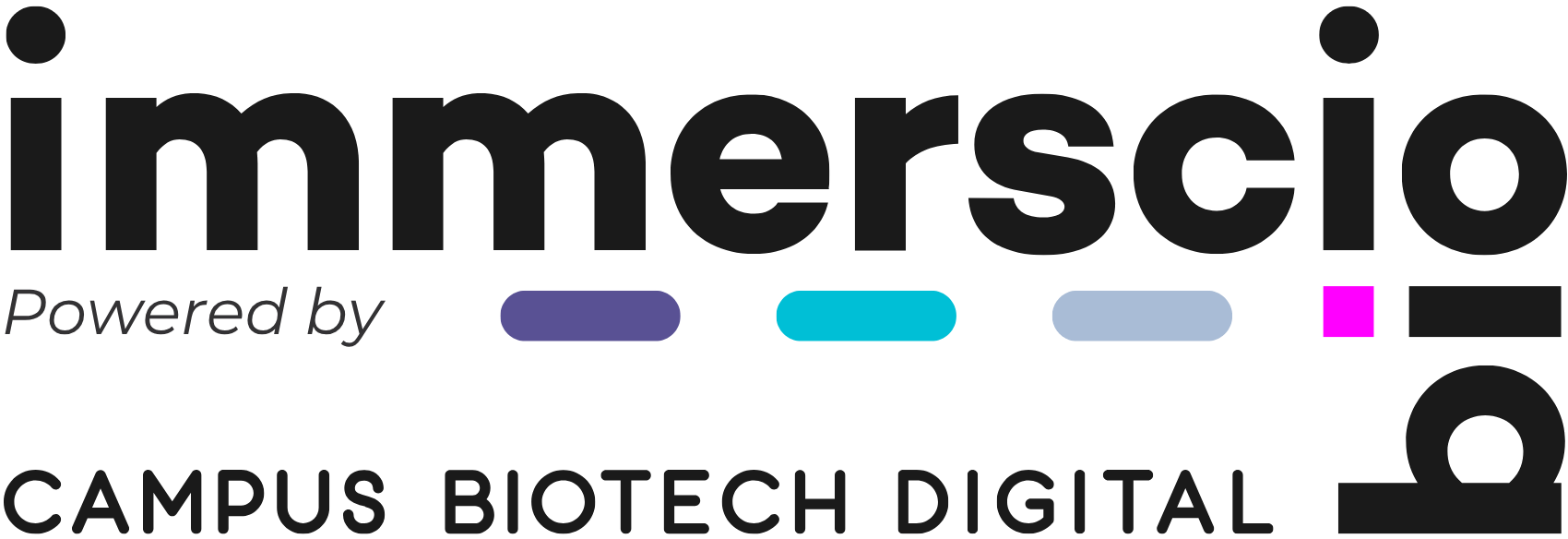

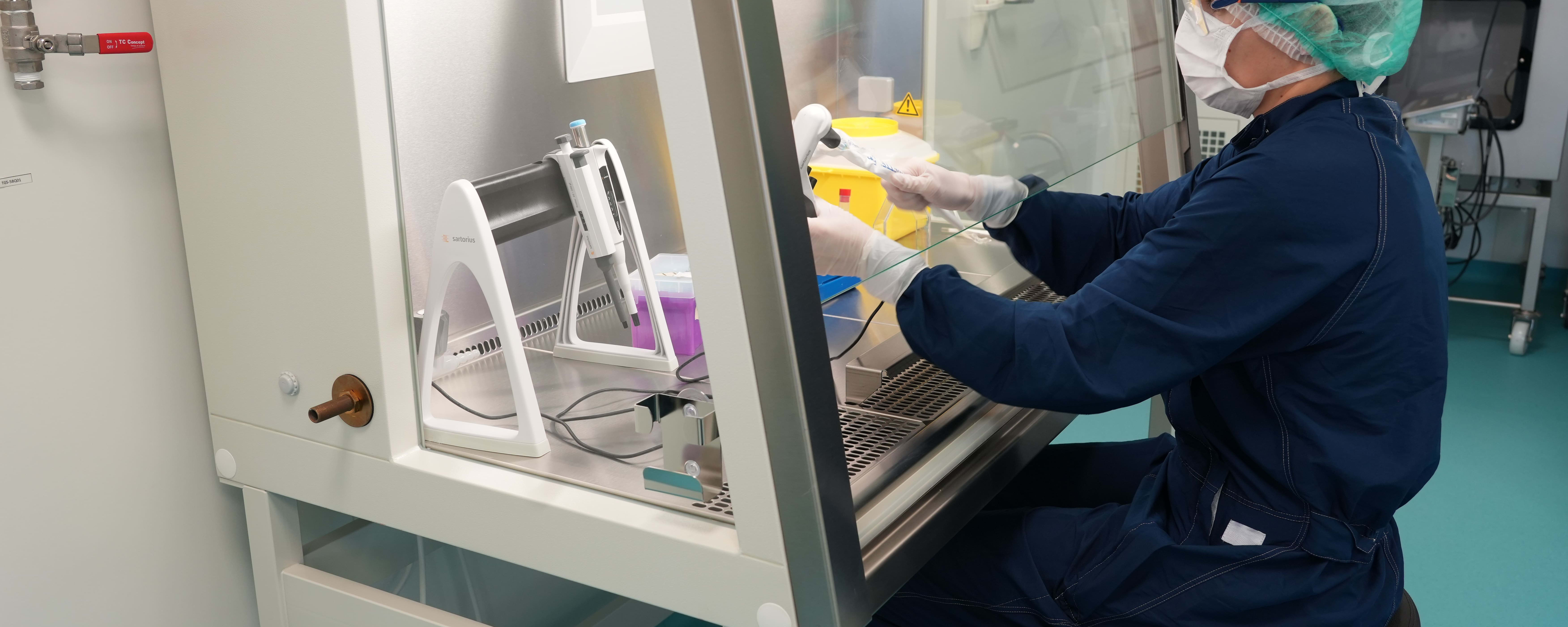
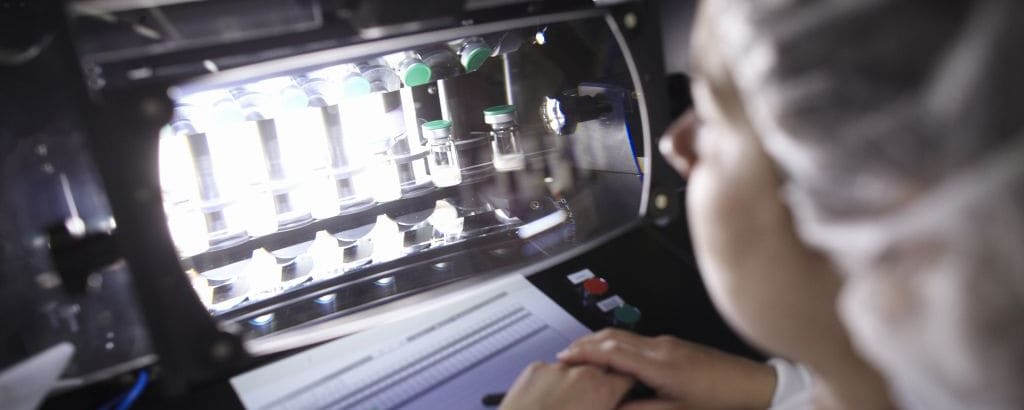
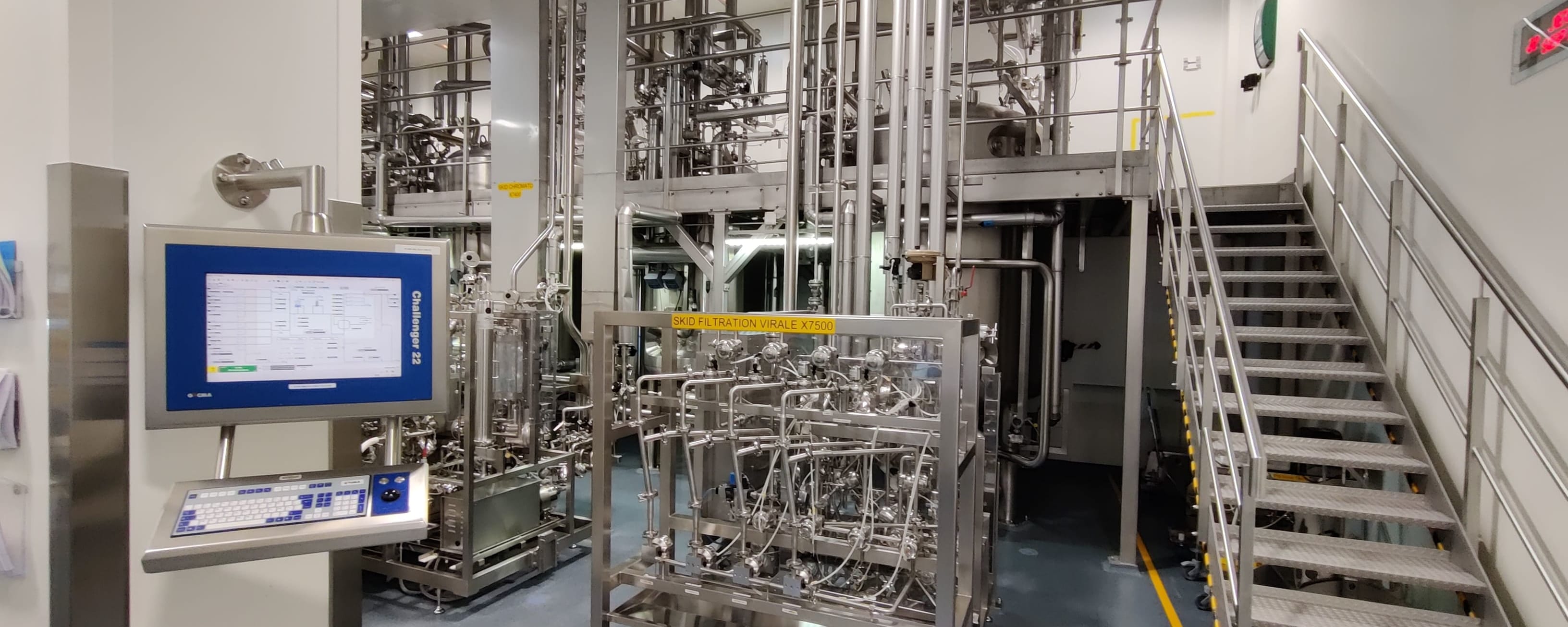







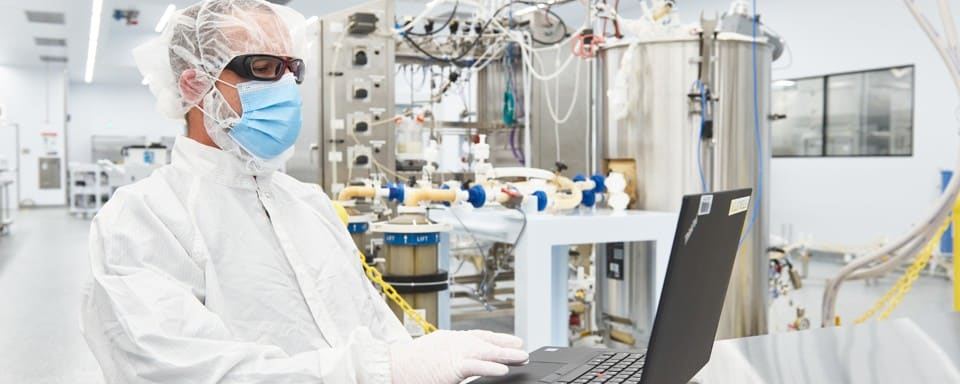
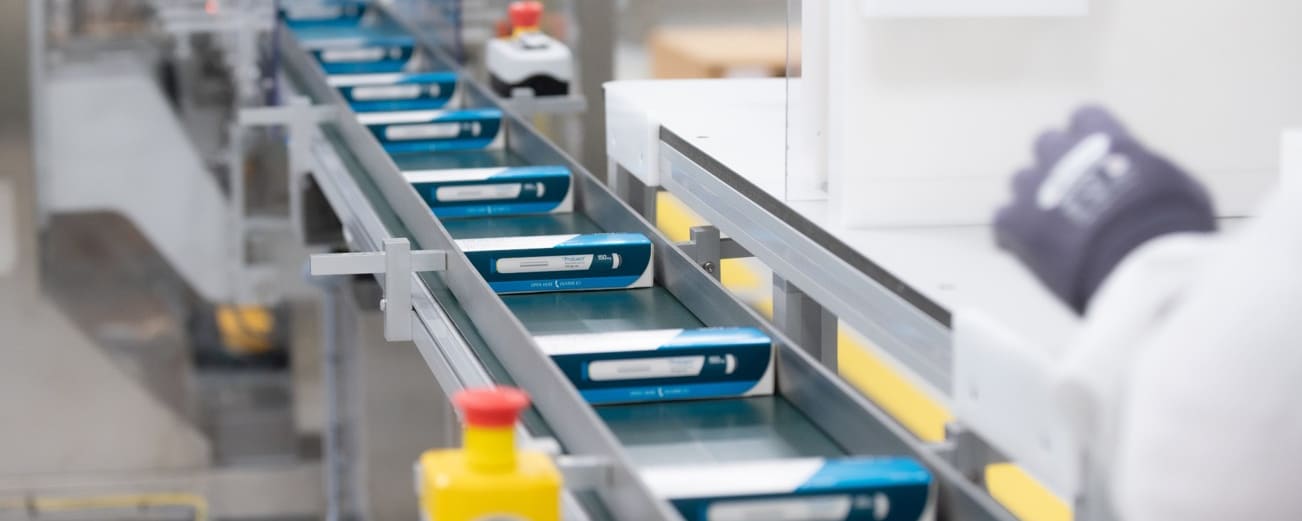
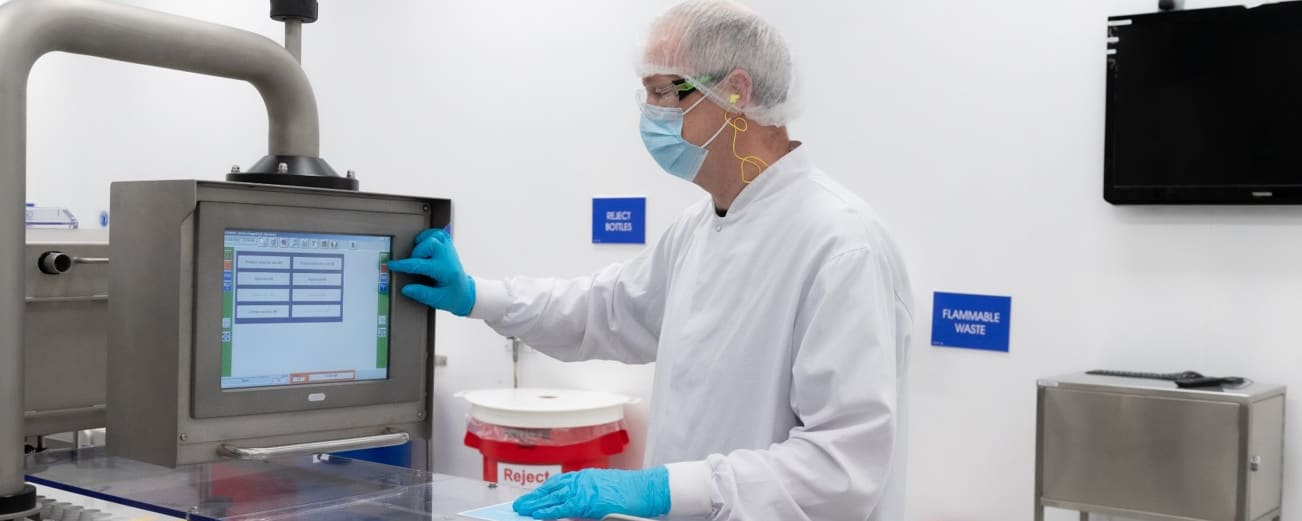
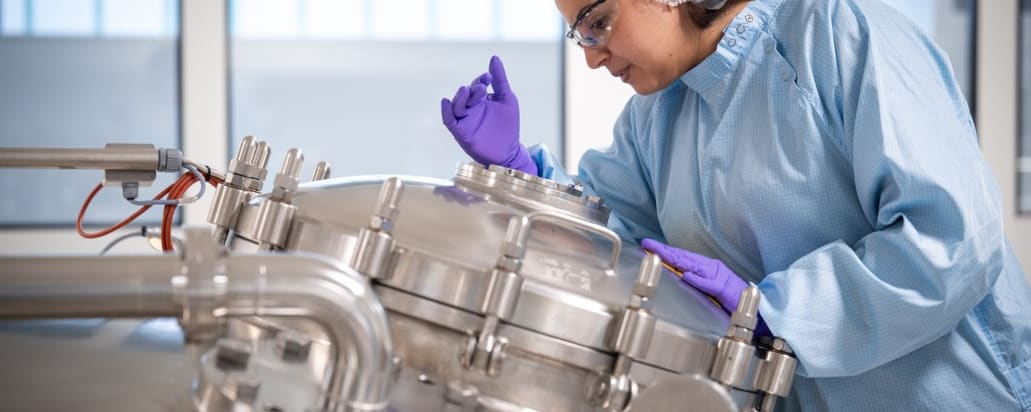
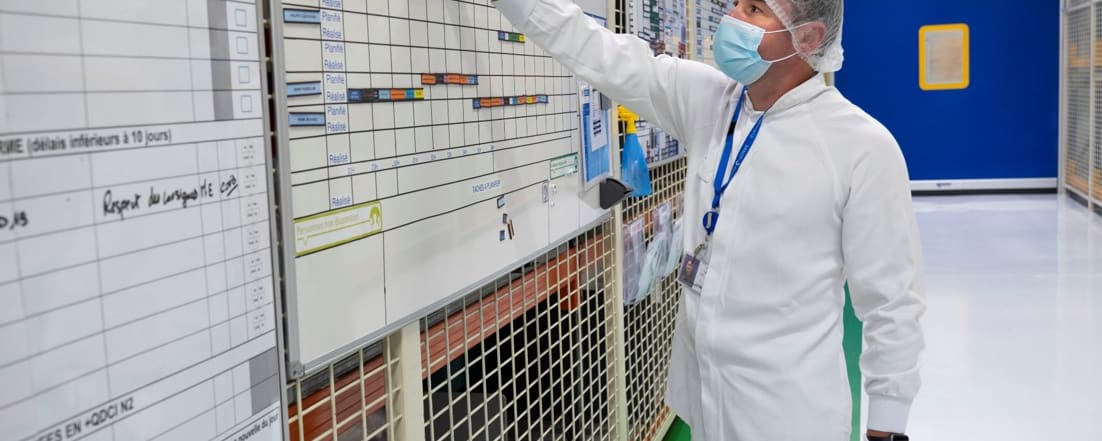
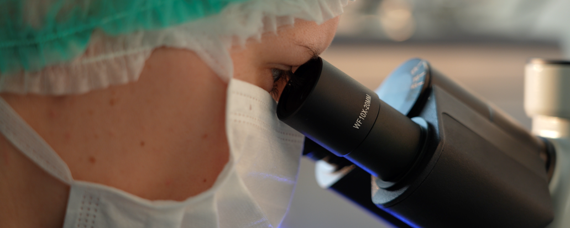
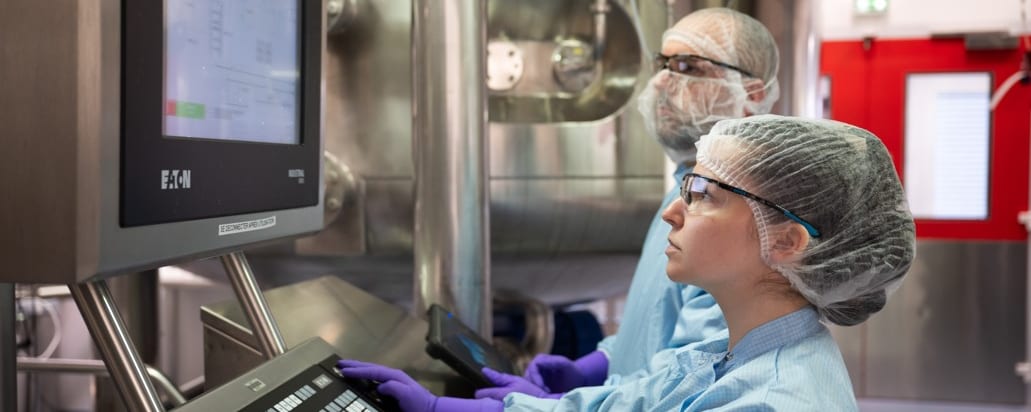
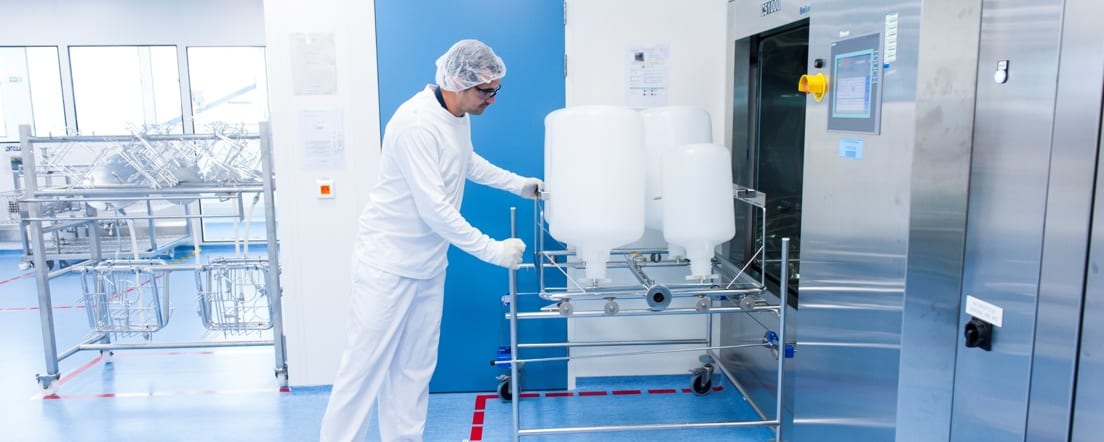
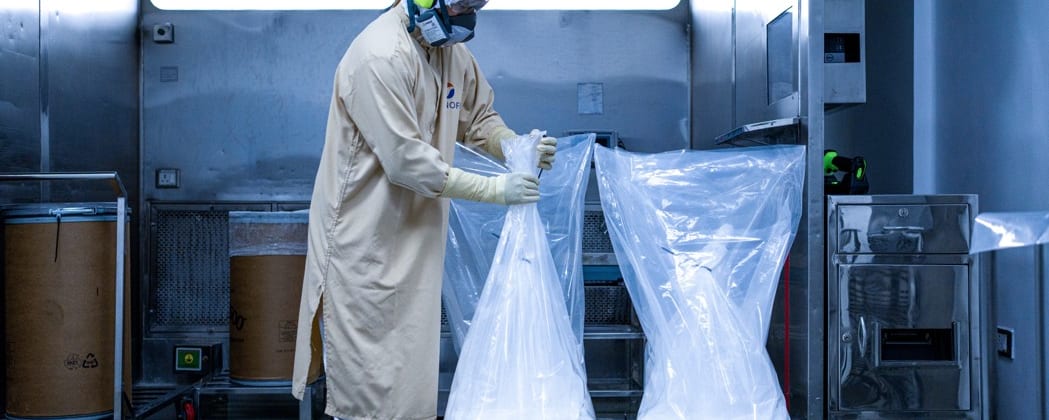
/7464%2Ftrainings%2Flogos%2Fd930a5656d8d7e20bd48c1eda98e73fa08aedb3045dbb0863cc39f86244467de.jpg)
/7464%2Ftrainings%2Flogos%2Fac17f00dc27566ef454270042474017b9d1ae8dcce28b6d2ccd3d5cbb267a208.png)
/7464%2Ftrainings%2Flogos%2F46e0c2a22a01eb82c3a7217feacfab0565718d86c57773e0290abe791593f26e.png)
/7464%2Ftrainings%2Flogos%2F42237de991bd53ef2bd7bdf6359b270ea816963ecfa7499cfdf7e0f9eaae173f.png)
/7464%2Ftrainings%2Flogos%2Fa4f61c8804252a533d4a3edb3d627fcd5ea832e61b85aedc98e99689eaab189b.jpg)
/7464%2Ftrainings%2Flogos%2F916cf975975a810b7fffb79026c96106c39cb0e1c7bb7e3c03692b51295cb1b8.jpg)
/7464%2Ftrainings%2Flogos%2Feb0db4b3db29cdbe4e9f3b442f5473e48b444a4189a9bdcc67a89e85f048cfa2.jpg)
/7464%2Ftrainings%2Flogos%2F851577e6c659272b7a70ecb49a4a9a90fdd498e7d4c4dd5bd3c9181ded899506.jpg)
/7464%2Ftrainings%2Flogos%2F585bdacb1b80c73abd1f80a6f254c6c798aebe712f857525c04ce522408a788e.jpg)
/7464%2Ftrainings%2Flogos%2F2cdb2c525e9e32c2a163e08d0c85c246a50fddfb8f18ed663dd791e2e7b8d475.jpg)
/7464%2Ftrainings%2Flogos%2F333504af5ac456249b1378e0dea45cf1ca0e0276bc48808e883fdbc2569053a1.jpg)
/7464%2Ftrainings%2Flogos%2Fb75fab952237eba61d01dd2283d74df6e76ea1a55b162abde817ffc3959ec0af.jpg)
/7464%2Ftrainings%2Flogos%2F37f24ef8322fff221cc5bb32aa2eabc4bbe1a61f60bdfac4789152eadd0c266b.jpg)
/7464%2Ftrainings%2Flogos%2F0a2c23705117cf0b736667c879ff08b44f41cba8f8efdbbc476401a2f167fd56.jpg)
/7464%2Ftrainings%2Flogos%2F2bd68644452455da6ba90c823d780245f00a1752f4348737691c37dab577847e.jpg)
/7464%2Ftrainings%2Flogos%2Fc526509f3098c17e4d3c6d9868294f996f4f74163bc5843920b155062279a67f.jpg)
/7464%2Ftrainings%2Flogos%2F54c4f6101b3c2413419d5b5ec63cfbdad9d3fc1e13203308d601b055e8e76f0c.jpg)
/7464%2Ftrainings%2Flogos%2F8459fff94067ee1c8e788b8d414dbccc363d9ceeec764b8124fcb2edc9572377.jpg)
/7464%2Ftrainings%2Flogos%2F07748ff4d333825a455a34da4119f2c9b7f23bc16728659a2865aa4128f39304.jpg)
/7464%2Ftrainings%2Flogos%2F6bb42cdbfd583963ab632c325d03355ed3d7e0b7e7862eeb530dfc949be790e5.jpg)
/7464%2Ftrainings%2Flogos%2Fedb4b23d77247a56b4ac2d62a28e15756c5c7a4e8ea53e191a08f65cdf8c8f8a.jpg)
/7464%2Ftrainings%2Flogos%2F9035cef582b263e14f8653765a804adb4f337205c7889f115e488cda769b4acc.jpg)
/7464%2Ftrainings%2Flogos%2F49d3debdca043c05053acc3d30133c283e14d039c343075fa1ee5ab553ea2e17.jpg)
/7464%2Ftrainings%2Flogos%2F43c441c2755f0ec5a373c9d018e8d9945bc50820bf31ca3f19889a88be0fabae.jpg)
/7464%2Ftrainings%2Flogos%2Fdfc834cb02f5afa4ab324be03dd15bc08a79e833a91f36ba4af6684af3756ccc.jpg)
/7464%2Ftrainings%2Flogos%2F49d1060ab1cd58eba26f4073f4c7a192415be65bfabf6b128791d582acb7878f.png)
/7464%2Ftrainings%2Flogos%2Fb53e740aec4cdcede7ce9f9355575fd2b1f9318632aee222315c08e735f25d32.png)
/7464%2Ftrainings%2Flogos%2Fd96996f19270d028be09524bc046ea42d9660e672e6bb64fdde4983626faac6e.png)
/7464%2Ftrainings%2Flogos%2F4e8bb8b5b1a55b158aedee99cf886fcc44a11581a47e50efccf38a46fb0cdce5.png)
/7464%2Ftrainings%2Flogos%2Fa3dea0023eaf5200ebbe160fabfd13a47f7071955848a888e49bb0cf953b4108.png)
/7464%2Ftrainings%2Flogos%2F465284bc77fd8f81bf625ff79ed515273f099329bac5bb6cf5e1a56d4dee6aed.png)
/7464%2Ftrainings%2Flogos%2Ffcbc94a0036a5d44cce7f1feb4adfc697f9ff1a5819a18e4fb1cb9cd3277b852.png)
/7464%2Ftrainings%2Flogos%2F88a86e313f3f6e4870d19a3ea85cdc4836833900804ba03586bfcc973f789bec.png)
/7464%2Ftrainings%2Flogos%2F692115e8259d39a60a6a7d0983d019fdf811a7a40a14f0917df0ce537bcd9af7.png)
/7464%2Ftrainings%2Flogos%2F28ae4d2052937e400de708f9da3ec6daaeb0eef3ee3bac87c74eea9ab77c905a.jpg)
/7464%2Ftrainings%2Flogos%2F10b7ec8b25077f2fdf8ec342622856179600f23e1a316c3c5c26ac2d8fb0db0d.png)
/7464%2Ftrainings%2Flogos%2Fab8c26c918a6c1290dbe820e1636b2f8d69739db6e3f3b96fefa6340581ec64f.png)
/7464%2Ftrainings%2Flogos%2Fdcf8ee6b95e9945d2244119e05652d654f06ebfe907c1223b765859d41aa0b45.jpg)
/7464%2Ftrainings%2Flogos%2F12dbde1460bfcbf0eea7351e9458bd42a0c9aaee47bd3409443aaef18872ebb9.png)
/7464%2Ftrainings%2Flogos%2F544e2958a8af860b36e432a97e069cd5bcda537e8757bf56e0e48704bc7ed7eb.jpg)
/7464%2Flegacy%2Ftrainings%2F82ac6d58e2978d4902982af916a8294f0873dac444685ac6da726c2ba7382eb2.png)
/7464%2Flegacy%2Ftrainings%2F2bd80a33a0d2642c4cc7ff3e3af636e3b7301347789a797440634bd900ce241c.png)
/7464%2Ftrainings%2Flogos%2F9a892f530bce59b8fa53ad31fcefec7cb2238d3cd7d3448a3cc14c491830774f.png)
/7464%2Flegacy%2Ftrainings%2F1f11f76eb9cbe5cb1a584b4ca530a8a40de7678a1c0bc8959bacb0f73eafe86c.png)
/7464%2Ftrainings%2Flogos%2Fab91769cd67b7c612e7716b0be0a6d2791e73aa9c2a25ad060cda47cb0476bbd.jpg)
/7464%2Ftrainings%2Flogos%2F198c58958c68e8e71de3d1e9a9498cbaa20d61692d995a000e8b8c4d643ca4b4.jpg)
/7464%2Ftrainings%2Flogos%2F6628a353bbf57611c68a0538bd638d5cf2b73a11e0c3f57e74fc634ace258997.jpg)
/7464%2Ftrainings%2Flogos%2Fc41bfe0717243116c87883983fde4fa65f551d9b8d8bf6fa6b6ccefb0d50db6a.png)
/7464%2Ftrainings%2Flogos%2F4b26f962bcc246496e37c7a763a1af7ebe68de9adf5c5b615a2777b8d1f5cdc6.png)
/7464%2Ftrainings%2Flogos%2Fd7d3459bcf0e856cde17ac7192d82547b9f8daedc28e4b6d32e7856994a1cc94.png)
/7464%2Ftrainings%2Flogos%2F37d530de7f496bc707d8b7d1648a7abc19313d5154144c3f86a7e31cc16292b2.png)
/7464%2Ftrainings%2Flogos%2F63ef5db7472635c9a957d523e19a3734dc9ca9c0ebe1f9eb7815bfd68a296be5.jpg)
/7464%2Ftrainings%2Flogos%2F4079c035c10485e75fbb0f0c1ec7fa8a02d39fe2db8e1ac36a9d22c8238a9231.jpg)
/7464%2Ftrainings%2Flogos%2F7b3fa56a921eb2f43736227a85f2cd439547f99008719bc058d627722915a43c.png)
/7464%2Ftrainings%2Flogos%2F26fa49d7e462a94aab8b1a1062f429412d2277a2831d29dc200f1dbb5870dc44.png)
/7464%2Ftrainings%2Flogos%2F68555597514fcc813d23c330bd657de8d3c44791b5e5ab3398a59457808c1a52.png)
/7464%2Ftrainings%2Flogos%2F51ee2fd34750066d873b14a2189ee0bcc0eddb37d26604b46dd86e2488470f66.png)
/7464%2Ftrainings%2Flogos%2F353d0a9130759ec45acb35c0687b9c153ff65f24eee85c6213d39a869b4d5377.png)
/7464%2Ftrainings%2Flogos%2F0a1fad282914dc58669d5e0966e940c9a0d8ab1be37235be2a5907cc580d3caa.png)
/7464%2Ftrainings%2Flogos%2Fe391de9813193ec15ff21b32f8634a8b73393f77f831c3cd54cf40dc09ee02fa.jpg)
/7464%2Ftrainings%2Flogos%2F1e4401b4074cb917b8f31afdeb303e0d73b17949f08bdd7d7990ccee74430684.png)
/7464%2Ftrainings%2Flogos%2F4ad129f007d21a85233a7740ea950e51acf5873ac210db454a47b9db89cf4109.png)
/7464%2Ftrainings%2Flogos%2F7299fcd4236d732f6e273cc990318fd5321c6810d9387a19223ec48d02b25e5f.png)
/7464%2Ftrainings%2Flogos%2Ffb4f8dfc071a8c863e85b87ddb75412b995649e973347b279b71a997e8b8391f.jpg)



